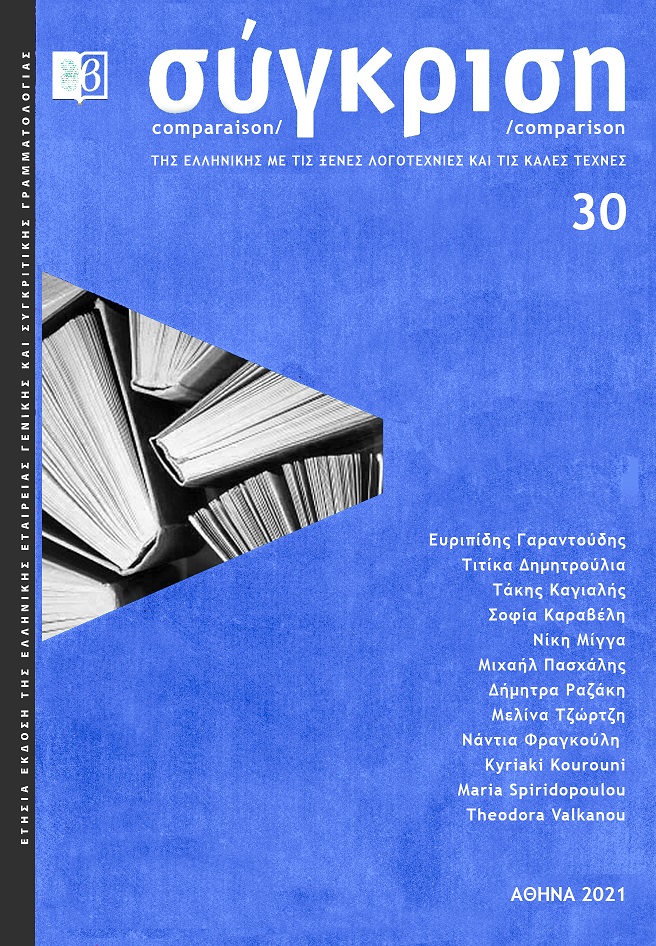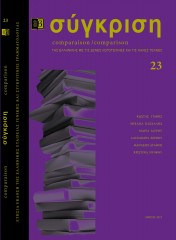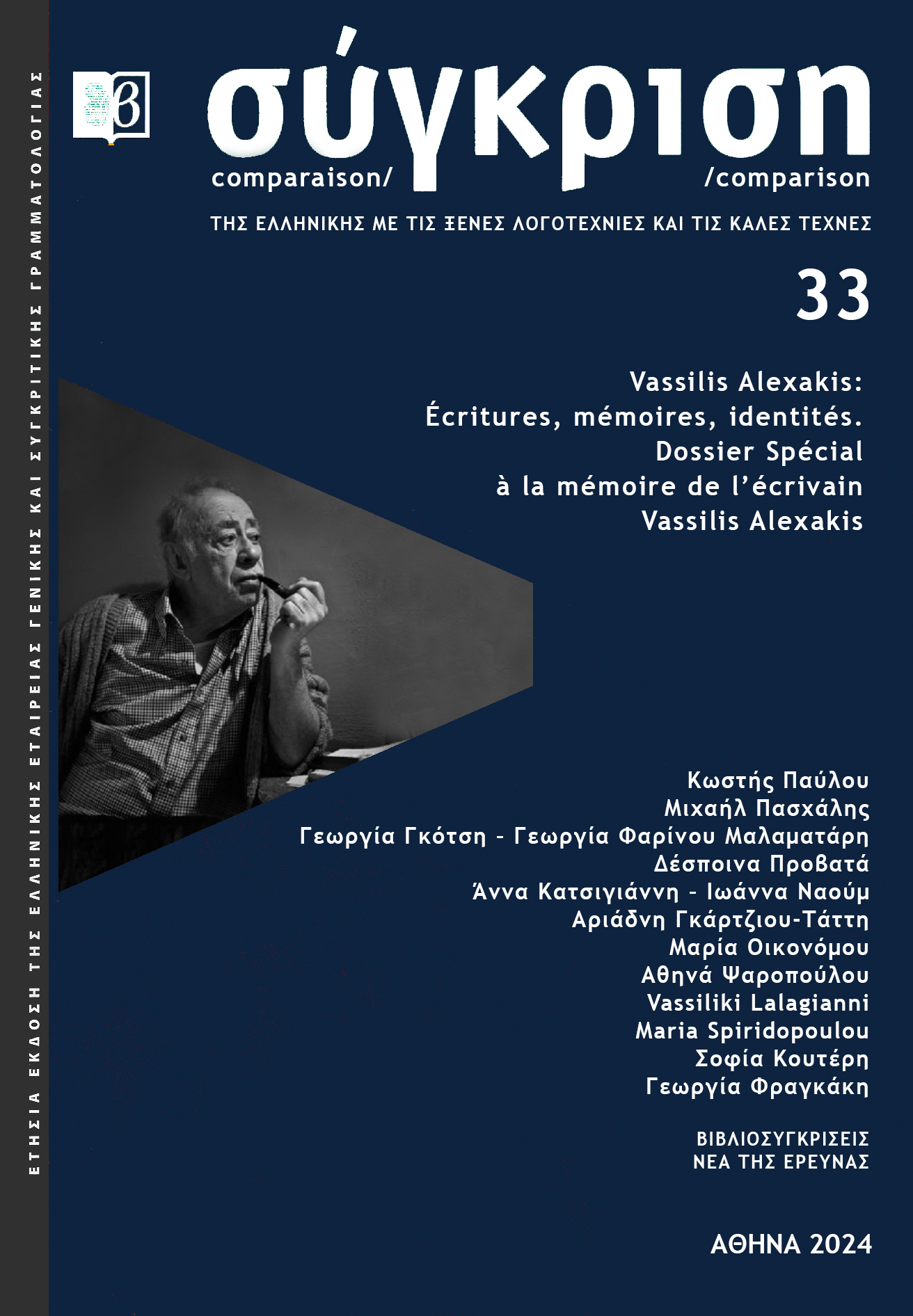Η τεθλασμένη πρόσληψη της αρχαιοελληνικής ποίησης και το ποίημα «Πάνω σ’ ένα ξένο στίχο» του Γ. Σεφέρη
Περίληψη
Refracted Modern Greek reception of Ancient Greek poetry and George Seferis’ poem ‘Upon a Line of Foreign Verse’
The term ‘refracted’ describes instances where Modern Greek reception of Ancient Greek poetry is mediated through one or more intertexts, like Italian-Latin or French-Latin. After treating briefly Dionysios Solomos’ poem ‘The Shade of Homer’ (1821-1822) the paper focuses on George Seferis’ ‘Reflections on a Foreign Line of Verse’ (1931). Each of the two poets claims the Homeric heritage for himself as a Greek poet through a poem that constitutes a refracted reception of Homer. The former opens a chain of three literary windows one after the other: first the appearance of Homer to the character Ennius in Petrarch’s Latin epic Africa; next Cicero’s ‘Dream of Scipio’; and finally the appearance of Homer to the Latin poet Ennius, who in the proem of his Annals represented himself as a reincarnation of the Greek poet. In responding to Solomos about a hundred years later Seferis treated the subject of Homeric Odysseus’ sea wanderings by commenting on ‘Heureux qui, comme Ulysse, a fait un beau voyage’, the opening line of Joachim du Bellay’s famous sonnet XXXI of the collection Les regrets (1558). Most probably Bellay reached back to Homeric Odysseus through a passage of Ovid’s collection of elegies written in exile and entitled Ex ponto. Ovid conceived his banishment from Rome to a region of modern Romania as the analogue of Odysseus’ wanderings away from Ithaca and became a source of inspiration for Du Bellay and other poets.
Λεπτομέρειες άρθρου
- Πώς να δημιουργήσετε Αναφορές
-
Πασχάλης Μ. (2021). Η τεθλασμένη πρόσληψη της αρχαιοελληνικής ποίησης και το ποίημα «Πάνω σ’ ένα ξένο στίχο» του Γ. Σεφέρη. Σύγκριση/Comparaison/Comparison, 30, 24–34. https://doi.org/10.12681/comparison.25293
- Τεύχος
- Τόμ. 30 (2021)
- Ενότητα
- Άρθρα

Αυτή η εργασία είναι αδειοδοτημένη υπό το CC Αναφορά Δημιουργού – Μη Εμπορική Χρήση – Παρόμοια Διανομή 4.0.
Οι συγγραφείς των άρθρων που δημοσιεύονται στο περιοδικό Σύγκριση διατηρούν τα δικαιώματα πνευματικής ιδιοκτησίας επί των άρθρων τους, δίνοντας στο περιοδικό το δικαίωμα της πρώτης δημοσίευσης. Άρθρα που δημοσιεύονται στο περιοδικό Σύγκριση διατίθενται με άδεια Creative Commons 4.0 και σύμφωνα με την άδεια μπορούν να χρησιμοποιούνται ελεύθερα, με αναφορά στο/στη συγγραφέα και στην πρώτη δημοσίευση για μη κερδοσκοπικούς σκοπούς και με δικαίωμα τροποποίησης μόνον με παρόμοια διανομή (αν αναμείξετε, τροποποιήσετε, ή δημιουργήσετε πάνω στο υλικό, πρέπει να διανείμετε τις δικές σας συνεισφορές υπό την ίδια άδεια όπως και το πρωτότυπο).






